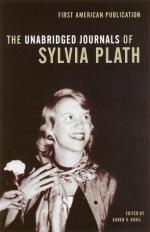|
This section contains 3,056 words (approx. 11 pages at 300 words per page) |

|
Sylvia Plath's early poetry is both technically and thematically significant, for scattered through the early poems are most of the elements which were later fused into the final, powerful outbursts of the mature poetry. We find in this early work the sense of doom, the fascination with disintegration and death so central to the later poems, though the poet's expressed attitudes are less cogent, less specific in the early poems. We see as well the ambivalence toward sex, wifehood, and motherhood. The propensity to nightmare is here, too, as are many initial uses of the later, more skilfully handled, set of images.
When viewed as part of her entire canon, Sylvia Plath's early poetry displays a distinctly amateur, experimental quality. In contrast with the spontaneous, raw force of her late work, Plath's early poems seem generally contrived, mannered, and self-conscious, features apparently caused by her tendency to create...
|
This section contains 3,056 words (approx. 11 pages at 300 words per page) |

|


